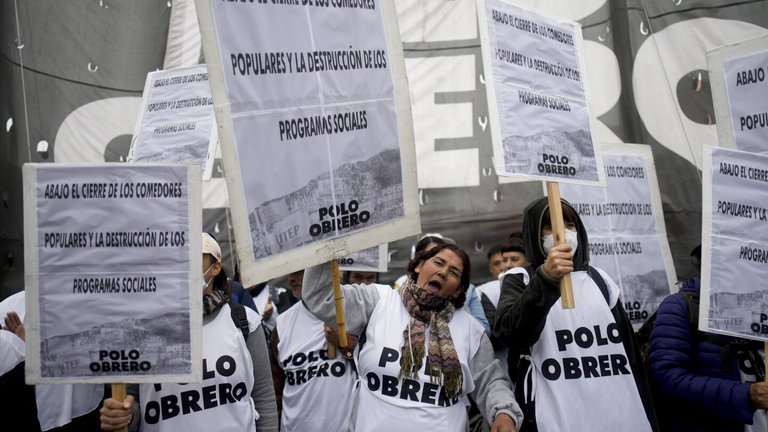
Corpses strewn all over Fresnillo
The rampant violence of organized crime in Mexico continues to leave macabre chronicles. The latest epidemic is in the municipality of Fresnillo, state of Zacatecas, where citizens have the highest perception of insecurity in the country. In the early hours of Tuesday morning, nine bodies were reportedly found in two locations. According to several reports, the events are part of the Sinaloa cartel's response to the onslaught of Zacatecas and federal security forces against its structures, with about thirty criminals captured, and at least one of them killed. There is a minor from the United States among those arrested. As usual, the bodies were left with intimidating messages to a rival group, potentially the Jalisco Cartel - New Generation. They have been spreading terror in Zacatecas for some time.
The Mexican Navy reported today that it destroyed eight clandestine laboratories where it found more than six tons of methamphetamines and three tons of precursor chemicals to make synthetic drugs. This occurred in the state of Sinaloa. During AMLO's administration, the Armed Forces have seized more than eight tons of fentanyl, almost a third of them last year.
In Porto Alegre, drinking water and other basic resources are scarce
The mayor of the capital of Rio Grande do Sul, in Brazil, warned that eight out of ten of its inhabitants have no running water, while only one of the six water treatment facilities is operational. According to several estimates, the region has been the victim of the worst natural disaster in its history following heavy rains—linked to El Niño—which hit last week and resulted in deadly floods and landslides. Latest estimates put the death toll above 90. Authorities are aware of other health risks brought on by the floods, such as possible upsurges in leptospirosis and dengue. Food and hygiene products are also in short supply. So, law enforcement agencies are also expecting an escalation of robberies and looting, which have already occurred. The Federal Police is also investigating "massive" dissemination of "fake news" which would have reduced the efficiency of the relief efforts.
Porto Alegre is nearly isolated, with shocking images of its airport and other critical facilities literally drowned. A teacher told AP that she had to leave her apartment and rent another place, which required withdrawing part of her savings. Some 204,000 people have been displaced. Meanwhile, another significant amount of rainfall is forecast to begin falling as early as Tuesday night. "Please believe the warnings and help us save lives. Let's reduce the damage so we can be together to rebuild", the mayor said. The scourge of nature threatens not only the food security of the area but that of all of Brazil, because Rio Grande do Sul produces 70% of the rice consumed by the South American giant. It also affects fuel distribution.
Tragédia no RS: o Aeroporto Salgado Filho, em Porto Alegre, segue completamente alagado nesta terça-feira (7). Um avião chama a atenção em meio à água, e parte da pista está tomada. O repórter @cristianodalcin narra a situação. As imagens são de Charles Jr. O piloto é Igor Cros.… pic.twitter.com/50MdSpBK0O
— GloboNews (@GloboNews) May 7, 2024
While in Brazil it generates intense rains, in Central American nations such as Costa Rica the impact of El Niño is translated into significant deficits of rainfall, affecting the water reserves used by hydroelectric plants. The government there has announced an electricity rationing plan to deal with an energy crisis which has also manifested itself further south in countries such as Ecuador and Colombia. "As reported, the effects of [El Niño] are extreme and caused a critical drop in the flows of hydroelectric plants in the Central American isthmus, including Costa Rica. The depletion of national reserves was accelerated by the default of the suppliers of the thermal plants that the [Government] rented for the dry season", official sources said. Costa Rica tends to generate most of its energy from clean sources.
New protests in Argentina
Several social organizations blocked roads connecting the capital with nearby towns, in protest against the adjustment policies of Javier Milei's government. The police evicted the demonstrators in compliance with a controversial protocol promoted by the Pink House to confront left-wing demonstrations. For next Thursday, the largest labor union has called for a general strike. One of the demands that were heard again during this day of protest was to restart the delivery of food to the social canteens. Milei's "libertarian" Ministry of Human Capital has blocked the deliveries under the argument that there was a lack of control and more than that, corruption. That may be true in some points, but it is also true that critical support is lacking for people who are having a hard time trying to survive the adjustment.
"Social programs are being destroyed, soup kitchens are being emptied", said one union leader. The political climate is rarefied and charged by the discussion in Congress of a key legislative project for the government of La Libertad Avanza, although cut back in its initial aspirations to get the consensus of representatives and senators who do not belong to the bloc and who rejected it in its first version. "We are calling for the [total stoppage of activities] on Thursday to reject not only the labor reform [included in the legislative project], but the decree of necessity and urgency and this economic model of recession and inflationary, in which the only reality is that prices are falling because consumption has dropped," said the secretary general of the General Confederation of Labor.
 People protesting this Tuesday (source).
People protesting this Tuesday (source).And this is all for our report today. I have referenced the sources dynamically in the text, and remember you can learn how and where to follow the LATAM trail news by reading my work here. Have a nice day.


Posted Using InLeo Alpha